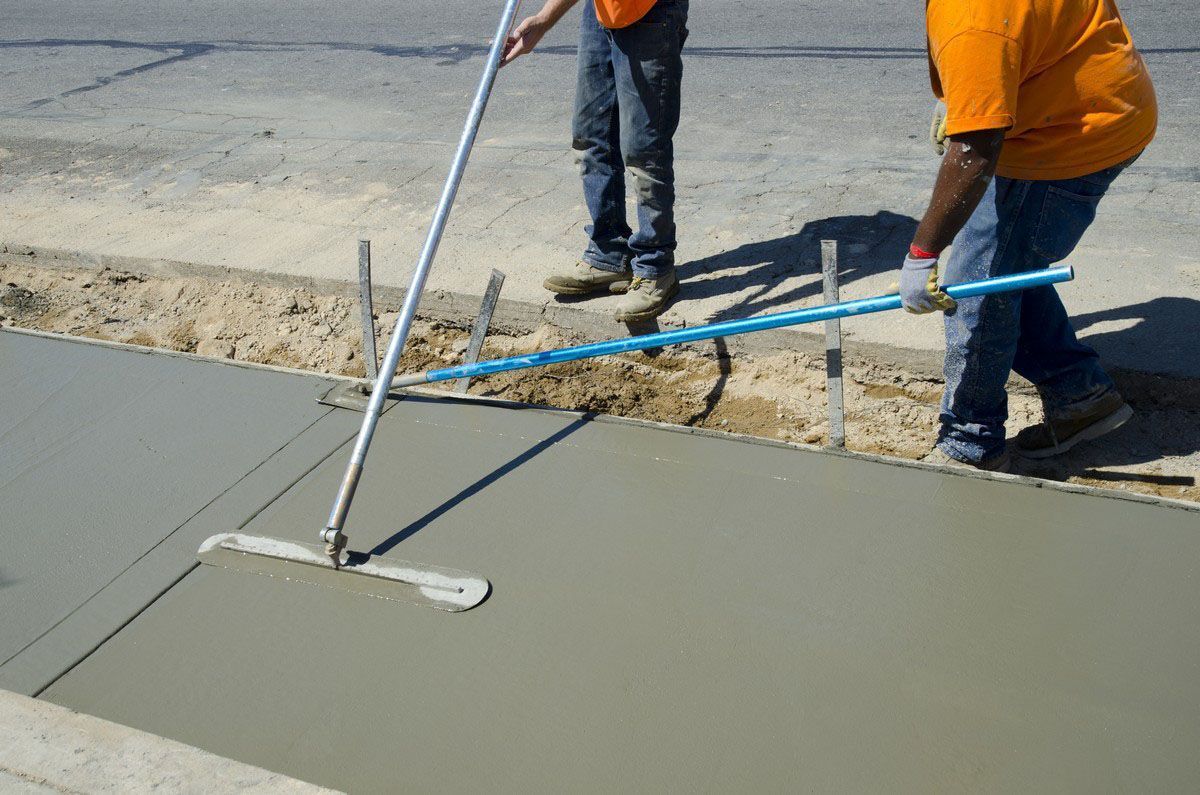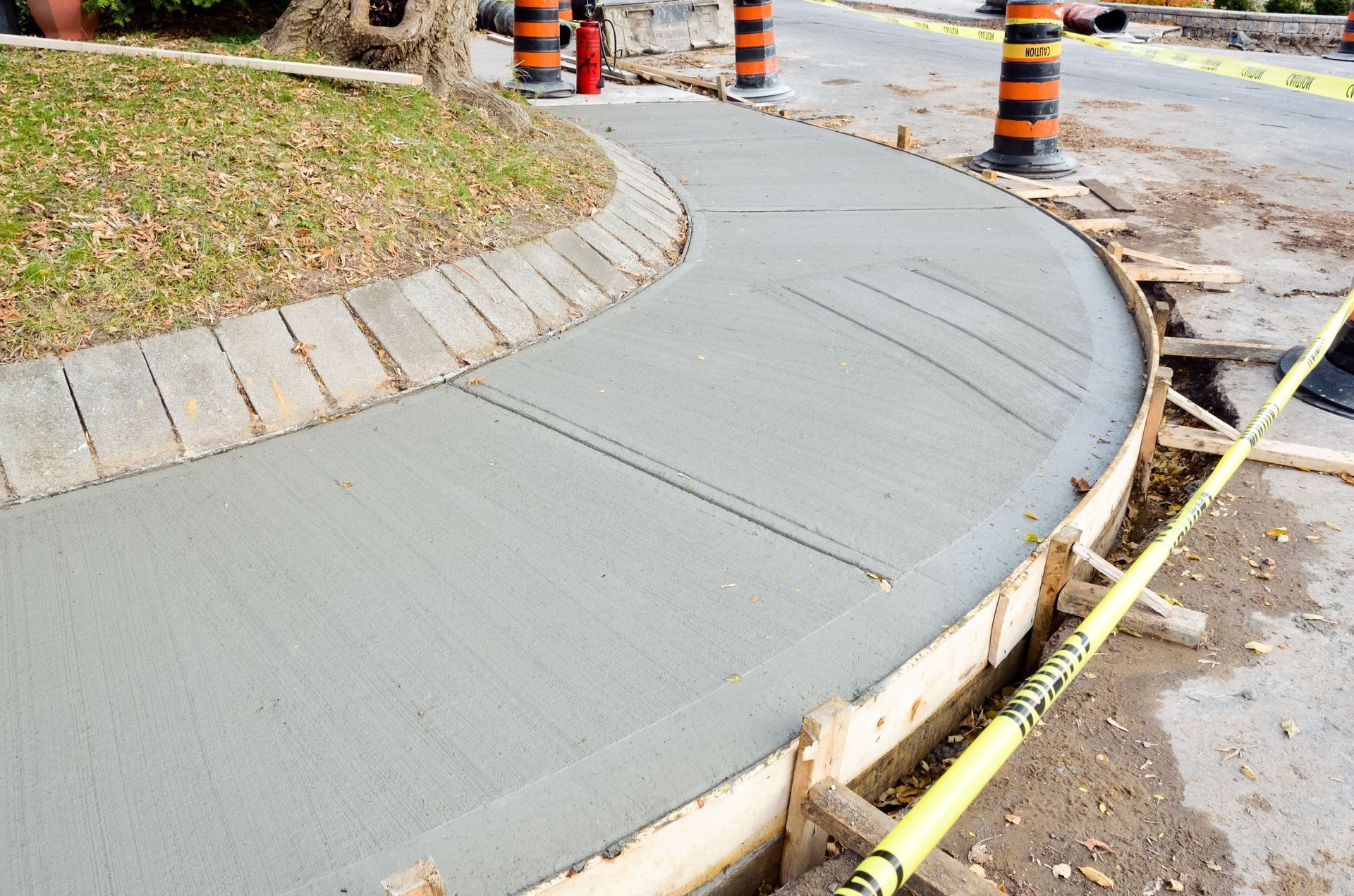September 9, 2025
Setting expectations with concrete contractors is one of the most important steps in ensuring that a construction project runs smoothly from beginning to end. Many homeowners and businesses underestimate the level of planning and communication needed, which often leads to delays, cost overruns, or disputes. By carefully defining project goals, establishing clear terms, and maintaining ongoing dialogue, you can create an environment that fosters accountability and quality results. Taking time to do this upfront saves both time and money while making the process less stressful for everyone involved.
Understand Project Scope and Requirements
Defining the scope and requirements of your project is essential for a strong foundation. The first step is to identify your goals and determine what you want the final product to achieve. Short-term and long-term objectives should both be part of the discussion, whether you are repairing a small walkway or building a large foundation. A clear understanding of scope ensures that concrete contractors can create a workable plan and avoid confusion during execution.
Budget plays a major role in shaping project requirements. Communicating your financial limits ensures that contractors can recommend appropriate materials and solutions without exceeding your capacity. According to IBISWorld, there are around 82,000 concrete companies in the United States, which means there are a variety of pricing structures available. Understanding costs and budget constraints early reduces the chance of surprises later. Talking openly about your budget also helps contractors suggest cost-saving alternatives or highlight upgrades that may provide long-term value.
Timelines are another critical factor in defining scope. A detailed schedule gives structure to the project and ensures accountability. Work with your contractor to set deadlines for each phase, accounting for potential setbacks like weather or supply chain issues. Realistic expectations at the beginning make it easier to handle challenges later. It’s also useful to prioritize which parts of the project must be completed first, so resources can be allocated where they matter most.
Choose the Right Contractor
Selecting the right professional for your job requires careful consideration of experience, reputation, and qualifications. Researching contractor experience ensures you hire someone who has handled similar projects in size and complexity. A proven track record not only suggests quality workmanship but also indicates access to reliable suppliers and subcontractors, which helps streamline the process. You want to know that your contractor has faced challenges before and found practical solutions.
References and reviews provide insight into the reliability and performance of a contractor. Asking for client testimonials or checking online platforms allows you to see how others rate their work. In an industry with tens of thousands of providers, verifying reviews helps narrow down your options and provides peace of mind. Consistently positive reviews often point to a company that values professionalism and customer satisfaction.
Detailed proposals, including costs, timelines, and references, should also be part of your evaluation. Proposals act as benchmarks for comparing multiple contractors, helping you make an informed choice. Interviews can also reveal how a contractor handles challenges, communicates, and aligns with your project requirements. Taking the time to compare options ensures you hire someone who matches your goals, not just your budget.
Communicate Clearly and Effectively
Establishing strong communication practices is crucial to keeping your project on track. Initial meetings set the tone for expectations, giving you a chance to outline your vision, goals, and concerns. These conversations should be documented for reference, so nothing is lost as the project progresses. When communication is handled properly, both sides feel heard and respected, making collaboration much easier.
Clear communication often benefits from simple reference materials that outline the project’s scope and design. Even something as straightforward as written notes, sketches, or examples from similar past projects can help concrete contractors understand your expectations. Providing tangible points of reference ensures that both sides share the same vision for the work, reducing the likelihood of misunderstandings and helping the project stay on track.
Assigning a single point of contact within the contractor’s team also helps streamline communication, ensuring information flows consistently without confusion. This approach prevents miscommunication and ensures responsibilities are clearly defined throughout the project. A good point of contact also gives you confidence that concerns will be addressed promptly.
Set Specific and Measurable Milestones
Breaking a project into smaller phases with measurable deliverables creates accountability. Each stage should have clear goals, timelines, and standards for completion. This approach allows for ongoing evaluation and helps identify problems early. For example, you might establish one milestone for pouring the foundation and another for finishing exterior concrete work. Tracking each step makes it easier to see how the overall schedule is progressing.
Deadlines should always be realistic. Rushed work leads to mistakes, while overly generous timelines can cause unnecessary delays. Collaborate with your contractor to find a balanced pace that prioritizes quality while maintaining efficiency. Monitoring progress at each milestone ensures consistency and provides opportunities for adjustments. Flexibility is important, but clear expectations set the standard for accountability.
Feedback loops are equally valuable. Encouraging open discussion about what is working and what needs improvement allows for timely corrections. With thousands of concrete companies across the country, approaches can vary widely, making continuous communication critical to keeping the project aligned with your expectations. Feedback also strengthens the professional relationship and can improve future collaborations.
Handle Payment and Contracts Wisely
Financial clarity is another key aspect of setting expectations. Negotiating payment terms upfront ensures both parties understand when and how money will change hands. These agreements should include payment schedules tied to specific milestones, minimizing disputes. Payment clarity helps prevent misunderstandings and builds mutual trust.
Contracts should be reviewed carefully to confirm that important details like scope, costs, and responsibilities are clear. Legal documentation helps protect both sides and provides recourse if obligations are not fulfilled. Spotting vague terms or one-sided clauses early can prevent costly disagreements later. Even simple contracts should leave no room for misinterpretation.
Transparency in costs, including detailed breakdowns of materials and labor, builds trust and keeps financial surprises to a minimum. Being proactive about contractual details ensures your interests remain protected and that both parties are aligned on expectations. When contracts are handled properly, they become a valuable tool for keeping the project organized and professional.
Mitigate Risks and Plan for Contingencies
Risk management is vital in construction. Identifying potential challenges, such as supply chain delays or weather impacts, helps you and your contractor prepare contingency measures in advance. This proactive approach reduces stress and improves resilience when unexpected problems arise. Thinking through “what-if” scenarios ahead of time makes it easier to respond when they happen.
A risk management plan outlines how risks will be monitored, addressed, and mitigated. Having extra resources, such as a contingency budget or backup suppliers, provides a cushion if things go off course. Planning for contingencies makes it easier to keep projects moving even when the unexpected happens. These safety nets add stability to projects of all sizes.
Regular reviews keep strategies current and adaptable to changing project conditions. Continuous refinement of plans demonstrates accountability and supports successful project outcomes even under pressure. Trained and prepared teams can respond more effectively to challenges, reinforcing a culture of readiness. Building flexibility into your plan ensures that setbacks don’t derail the entire project.
By setting expectations with your
concrete contractors
from the start, you create an environment of trust, professionalism, and accountability. Detailed planning, transparent communication, and proactive risk management all contribute to a project that stays on schedule and within budget. Taking these steps ensures you avoid costly mistakes and enjoy high-quality results. When everyone involved knows what to expect, projects move forward smoothly and with fewer surprises.
For expert support in Baltimore and surrounding areas, contact Community Concrete Material Supply LLC. We provide services in commercial and residential concrete, masonry, and more. With the right planning and communication, our team is ready to help your project succeed from start to finish.










